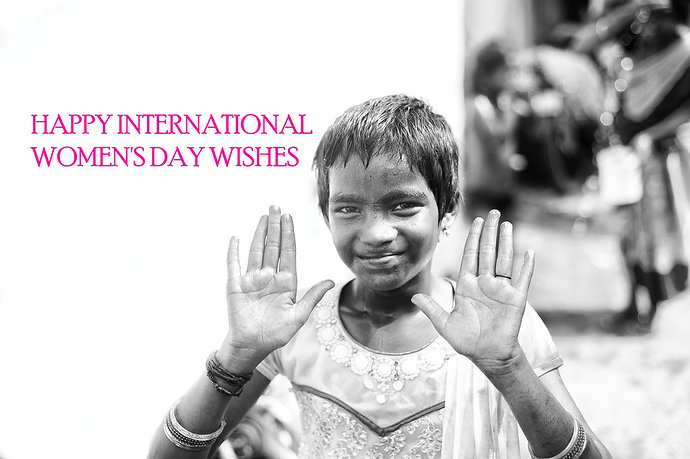“
HAPPY INTERNATIONAL WOMEN’S DAY” by
Nithi clicks is marked with
CC BY 2.0.
As I’ve looked over the OEWeek schedule of events and resources I’ve been thrilled to see the extent to which open education work is led by women. Given this is International Women’s Day let me congratulate all those women involved in open education and acknowledge the amazing women at OEGlobal who help make OEWeek happen. Marcela Morales @marcela leads the OEWeek initiative overall, Isla Haddow-Flood @IslaHF is responsible for all the communications around it, and Una Daly @unatdaly and Liz Yata @LizYata support the CCCOER communities OEWeek efforts. Marcela, Isla, Una, Liz thanks for all you do!
I went to several sessions today and tried to listen with an ear for the ways in which open education empowers those who historically have been subjugated.
I worked at Creative Commons for five years so find the legal underpinnings of open education very interesting. Creative Commons licenses work directly with copyright and intellectual property law. But intellectual property is largely a global north concept often historically imposed on other countries and cultures. You could consider it a form of colonialism.
No where is this more evident than in the context of traditional knowledge of indigenous peoples.
I really enjoyed the Traditional Knowledge Labels: An Overview with Local Contexts session today for making this point and sharing with us how we can go beyond intellectual property rights to consider cultural property rights.
This becomes very visible in cultural collections of museums and archives. Indigenous peoples are not recognized as legal ownership or rights holders to these cultural collections. They have no control over them. As museums and archives move into digitizing and cataloging their collections the records they create are missing important data associated with the origins of the materials in the collection. This has led to a drive to address this issue and establish more indigenous data sovereignty.
Open Education Week focuses a lot on OER and other open practices associated with teaching and learning. A related area of open is Open Data. Just as Open Educational Resources are seen to have a set of 5R principles (Revise, Reuse, Remix, Redistribute, Retain) Open Data has a set of principles called FAIR - Findable, Accessible, Interoperable, Reusable. The FAIR principles aim to ensure equitable access to and participation in data access, use and reuse.
In the indigenous context, a set of CARE principles (Collective benefit, Authority to control, Responsibility, and Ethics) were developed to complement the FAIR principles. They aim to give indigenous peoples a say over the purpose for which data is used and who has permission associated with that use.
Local Contexts has created an associated set of traditional knowledge labels. Labels function to represent cultural property right alongside intellectual property rights. I found it fascinating to learn that while these labels are standardized some flexibility is built in to enable indigenous communities to customize them. Labels convey provenance, protocols, and permissions recognizing cultural authority alongside legal copyright law.
A number of example labels were shared. The Attribution label brings indigenous names back into the record. The Culturally sensitive label indicates whether it should be accessible to the public. The TK seasonal label connects land and waters to knowledge.
In the context of museums, archives, and even institutions, these labels work to help ensure data records associated with collections are appropriately inclusive of traditional knowledge contexts. Some really great working examples were given of how this is applied in practice.
A big thanks to eCampusOntario for hosting this session in English and French and to the Local Contexts team for sharing with us this great work toward recognizing indigenous data sovereignty.
I love how open education advances the rights of women, indigenous peoples and others who have often been marginalized or underserved. Big thanks to all who work toward this aim.
